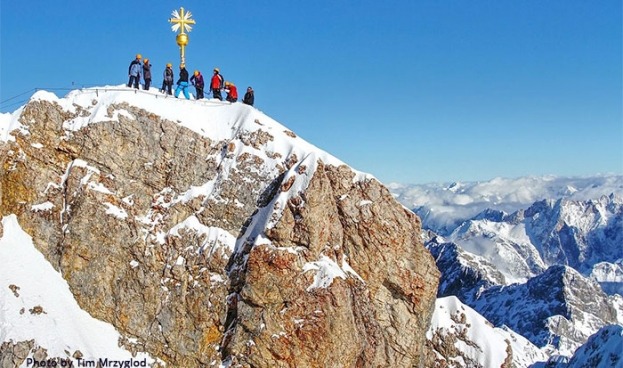The word "democracy" can be traced back to the Greek dēmokratia, from dēmos "the people" + -kratia "power, rule." The people rule — but what kind of people? If most people who make up a democracy are immature, selfish, foolish, or cruel, their rule will reflect these qualities. A thriving democracy depends on people who care about polishing their character for the sake of a greater whole.
Many different philosophies, religious traditions, and schools of psychology give us ways to do that polishing. One strong example is this chart of spiritual practices from across a range of traditions. We can use the practices given here to cultivate democratic values like appreciation, courage, and accountability. These values, in turn, uphold democratic values like the common good, liberty, and justice for all.
How far can we take these practices? As the saying goes, the sky's the limit. American psychologist Abraham Maslow had a keen understanding of the extraordinary potential of human beings. He wondered what made some people so much more alive than others, and this curiosity led him to develop a list of the qualities that the most self-actualized people exhibit. Here's what he included:
1. an efficient perception of reality and comfortable relations with it
2. acceptance (of self, others, nature)
3. spontaneity; simplicity; naturalness
4. problem-centered responses (as opposed to ego-centered ones)
5. the quality of detachment; the need for privacy
6. autonomy; independence of culture and environment
7. continually fresh appreciation
8. mystic / peak experiences
9. a feeling of kinship with others
10. deeper and more profound interpersonal relations
11. a democratic character structure
12. discrimination between means and ends, between good and evil
13. a philosophical, un-hostile sense of humor
14. self-actualizing creativeness
15. resistance to enculturation; the transcendence of any particular culture
If you would like a challenge that will help you reflect further on these qualities, try matching some of the points on Maslow's list with these topics which explore ways to build democracy. For instance, the Respect topic sheds light on point #2, "acceptance of self, others, and nature." The Character topic helps develop point #6, "autonomy; independence of culture and environment." And the Empathy topic goes well with point #9, "a feeling of kinship with others."
Can you make other connections between Maslow's list of fully awake qualities and the democracy-related topics? The two lists do not, of course, match up one-on-one. But looking for places where they do overlap further strengthens the muscles that we need to make "the rule of the people" beneficial for all those served.

 The Sky's the Limit
The Sky's the Limit